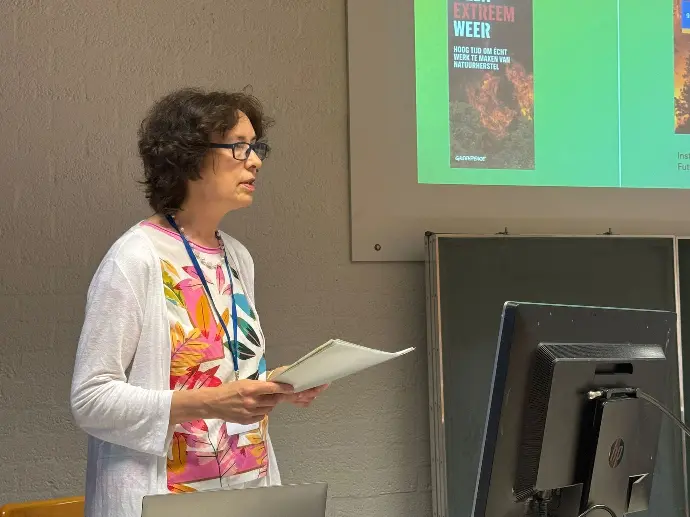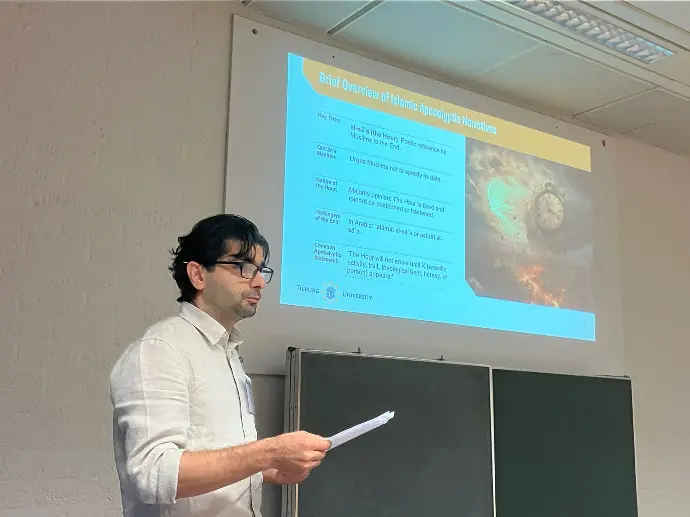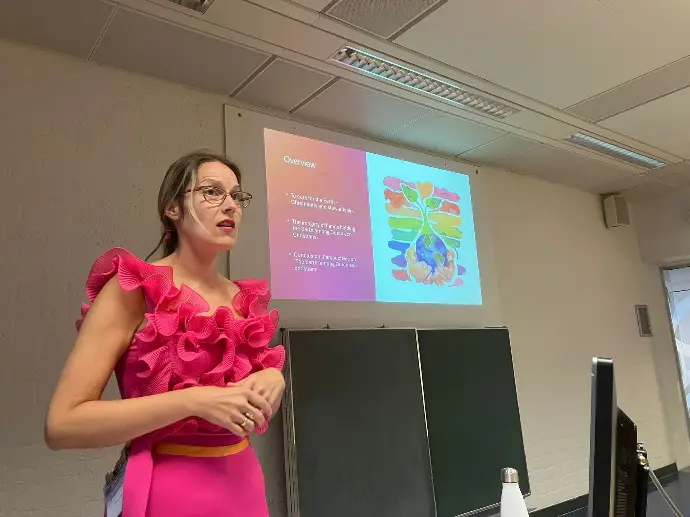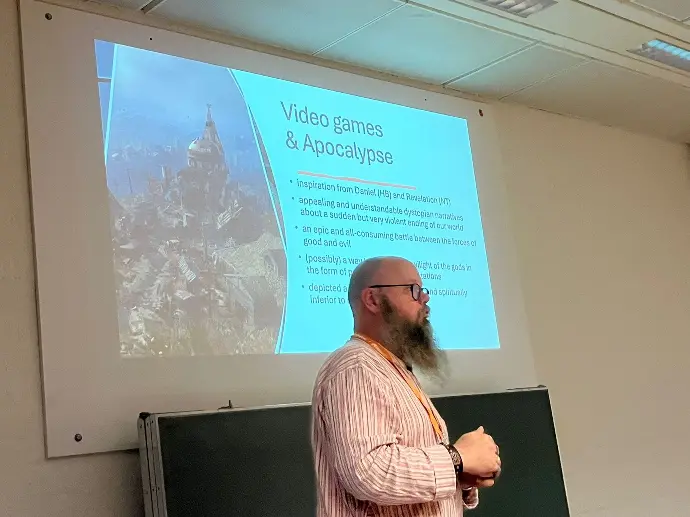Researchers Explore Religious Vocabularies in Climate Change Discourse at SBL 2024 in Amsterdam
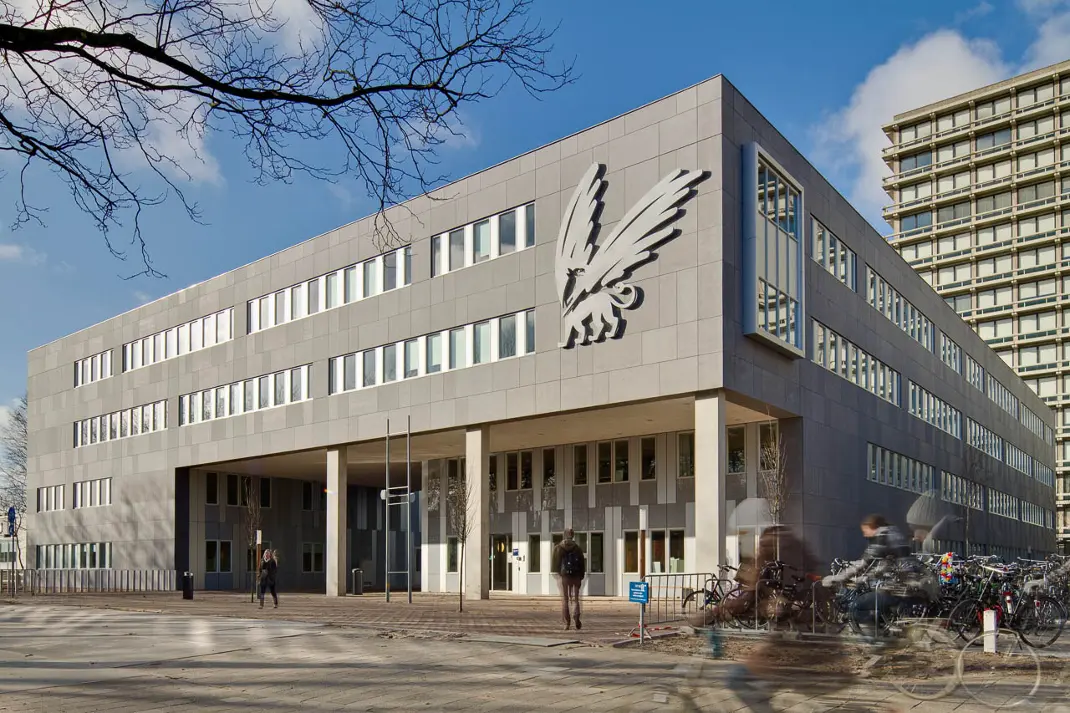
The Society of Biblical Literature (SBL) held its 2024 International Meeting from July 28 to August 1 at the Vrije Universiteit (VU) in Amsterdam, Netherlands. The conference attracted more than 500 scholars and was highly productive, focusing among other things on the intersection of biblical studies and contemporary issues. One of the sessions, titled "Religious Vocabularies in Climate Change Discourse," delved into how religious language and narratives inform and shape discussions on climate change.
Researchers from the Religion and Climate Change project team presented their insights during this session. Caroline Vander Stichele discussed the use of biblical vocabularies, particularly from the creation stories and the Book of Revelation, within climate change discourse. She explored how these narratives influence perceptions of environmental issues and the ways people consider addressing them. Vander Stichele highlighted both the potential and limitations of employing these religious vocabularies in the context of climate change, suggesting that while they can provide meaningful frameworks, they may also constrain the discourse in certain ways.
Frank G. Bosman presented an analysis of the critically acclaimed Dutch video game Horizon Zero Dawn. The game depicts a dystopian future where humanity has been wiped out by self-replicating military robots, leading to ecological collapse. Before their extinction, humans create an AI named Gaia to restore Earth's biosphere and reboot human civilization. Bosman examined how the game intertwines ecological themes with the theological concept of original sin, portraying humanity as suffering the consequences of their ancestors' faults and transgressions. His analysis shed light on how popular media can reflect and influence societal views on ecological responsibility and inherited guilt.
Deborah de Koning delivered a presentation titled "From Caring for to Carrying the Earth: Perspectives on 'the Earth' among Dutch Eco-Christians." She discussed how eco-Christians in the Netherlands conceptualize the Earth, often personifying it and elevating it to a sacred symbol. De Koning shared examples from her fieldwork where the Earth is depicted being held in human hands, sometimes replacing traditional Christian symbols like the cross in eco-rituals. She suggested that this imagery indicates a shift in focus from a creator-centric view to one where humans take active responsibility for the Earth, highlighting both the empowerment and theological implications of this perspective.
Ömer Gürlesin explored the eschatological role of Jesus (Isa) in Islamic theology, focusing on how traditional apocalyptic narratives can be reinterpreted in the context of contemporary environmental crises. He discussed the minor and major signs of the Hour in Islamic eschatology, including figures like the Mahdī, Jesus, the Antichrist (Dajjāl), and Gog and Magog, drawing parallels between these symbolic events and modern environmental disasters. Gürlesin highlighted the ethical framework that Islamic teachings provide for addressing the global climate crisis and proposed that collaboration between Muslims and Christians, grounded in shared spiritual values, could enhance efforts toward climate justice and environmental stewardship.
The presentations contributed significantly to the examination of how religious narratives and symbols shape understandings of and responses to climate change. By analyzing diverse religious traditions and contemporary cultural artifacts, the researchers underscored the complex ways in which spirituality and environmental concerns intersect, offering valuable perspectives for both academic discourse and practical action in addressing ecological challenges.


